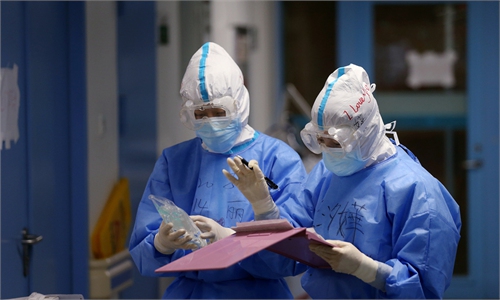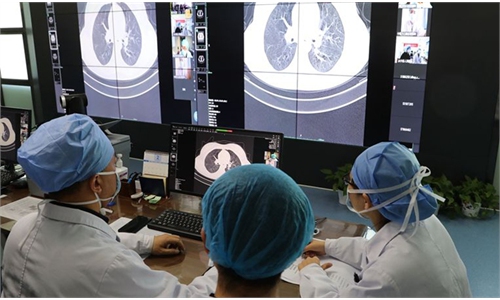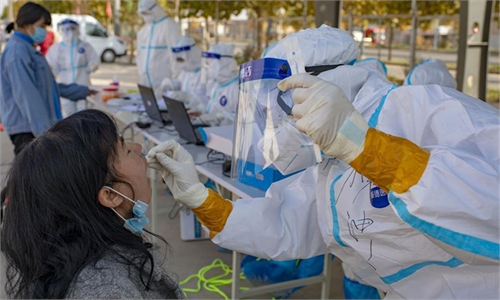China's major port city Tianjin starts mass testing of 2.6 million residents as new cases emerge
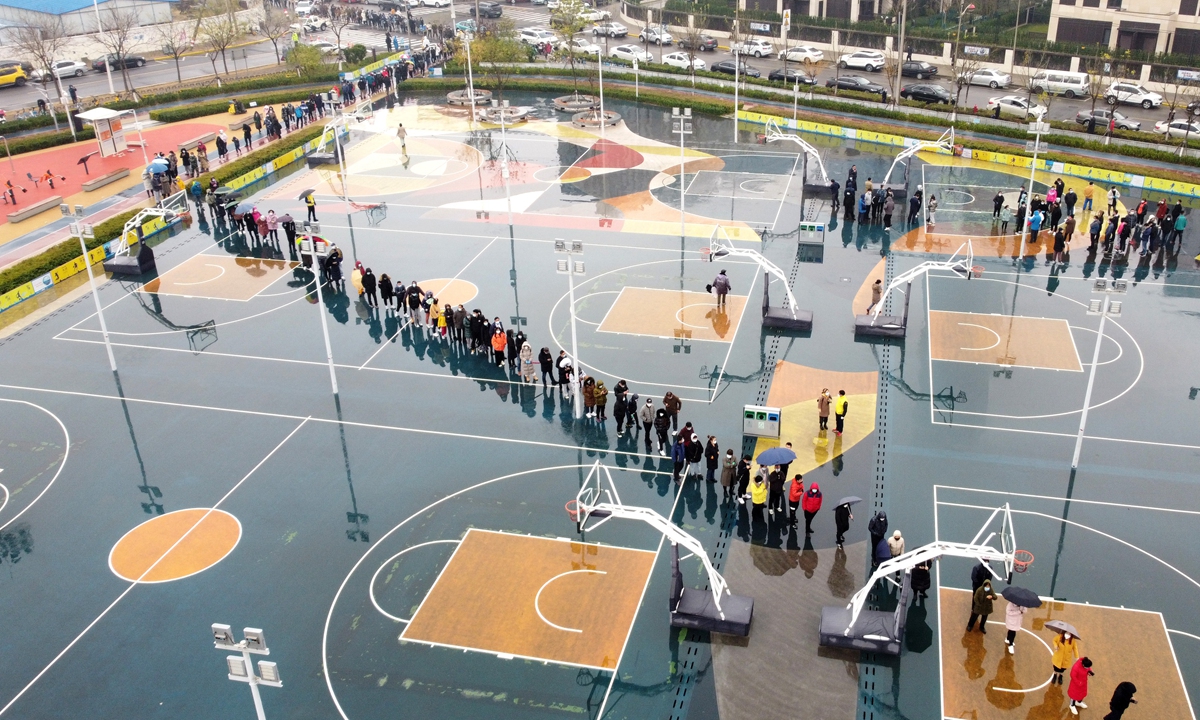
People line up to undergo Covid-19 tests at a makeshift testing center in Tianjin on Saturday. Photo: AFP
Tianjin, a city near Beijing, has been conducting mass nucleic acid testing on all 2.6 million residents in one of its districts after several people there tested positive for COVID-19 in the past days.
More than 1.7 million people in Binhai New Area of Tianjin municipality have taken their nucleic acid tests as of 11am on Sunday, CCTV reported. A total of 7,409 medical personnel worked on the front line.
The tests started on Saturday morning. Rain and snowfall over the weekend didn't stop Tianjin residents from voluntarily cooperating with the campaign.
It has been months since the city had detected a local COVID-19 case. But Tianjin still responded quickly, announcing it was entering a "war time" status and effectively organizing mass testing.
In Yaxinyuan community of Binhai New Area, it only took each resident one minute to get tested. The process included scanning a QR code, showing ID, checking body temperatures and collecting throat swabs. The tests were conducted in the community so residents only needed to go downstairs, the Tianjin Daily reported.
Tianjin has found 11 COVID-19 cases in the latest outbreak since the first case was detected on November 8, according to the Beijing Daily on Sunday.
One of the infected, surnamed Wang, worked on cold chain packing and transportation. More cases were found after all residents in Wang's community Kanhaixuan got tested.
On Thursday night, the city announced four cases in Kanhaixuan, prompting the community's closure. The following day, Binhai district announced it would conduct testing for all residents within two or three days.
Guo Xuan, a 28-year-old resident living in Jinnan district, Tianjin, told the Global Times on Sunday she was not that worried when she heard of the new outbreak in Binhai New Area as she is confident with the Chinese government's capability and experience in containing the epidemic.
Her husband's company in Heping district put employees on notice to work at home on Friday to lower the risk of infection from commuting and reduce staff density in office.
But Guo, an e-commerce dealer of cosmetics, said social pressure is far greater than the pressure brought by the epidemic.
"It seems that some people's panic about the epidemic is exaggerated. Instead of being afraid, it is better to learn some correct epidemic prevention knowledge," she noted.
Because she has not been to Binhai New Area in the past few months, Guo has no plans to get tested for COVID-19 yet.
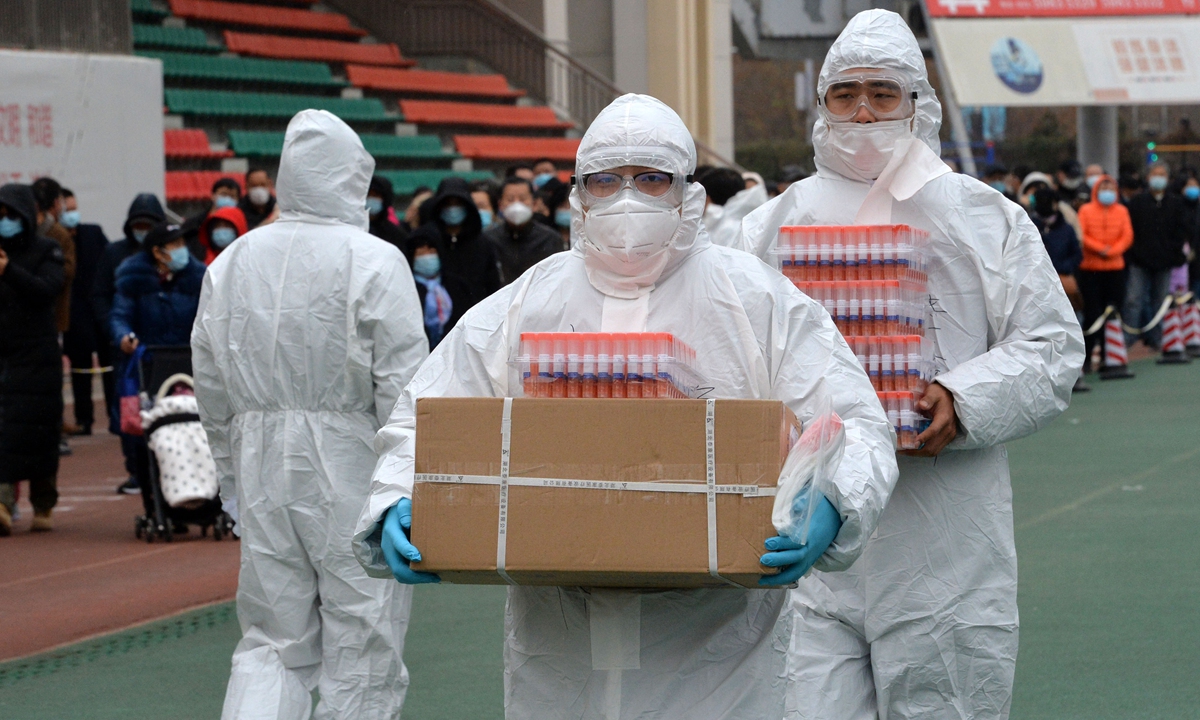
Medical staff in Tianjin carry test tubes at a temporary test site in Tianjin. Photo: People's Daily
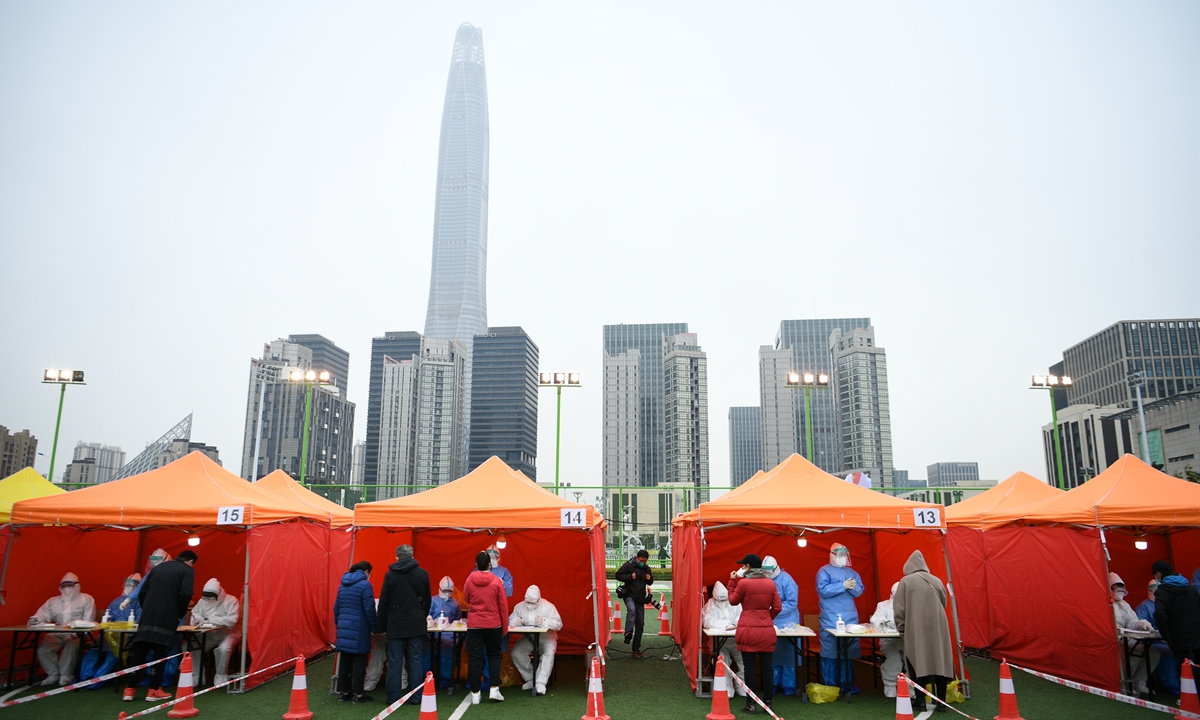
People take COVID-19 nucleic acid tests on Saturday in Tianjin Binhai New Area. Photo: cnsphoto
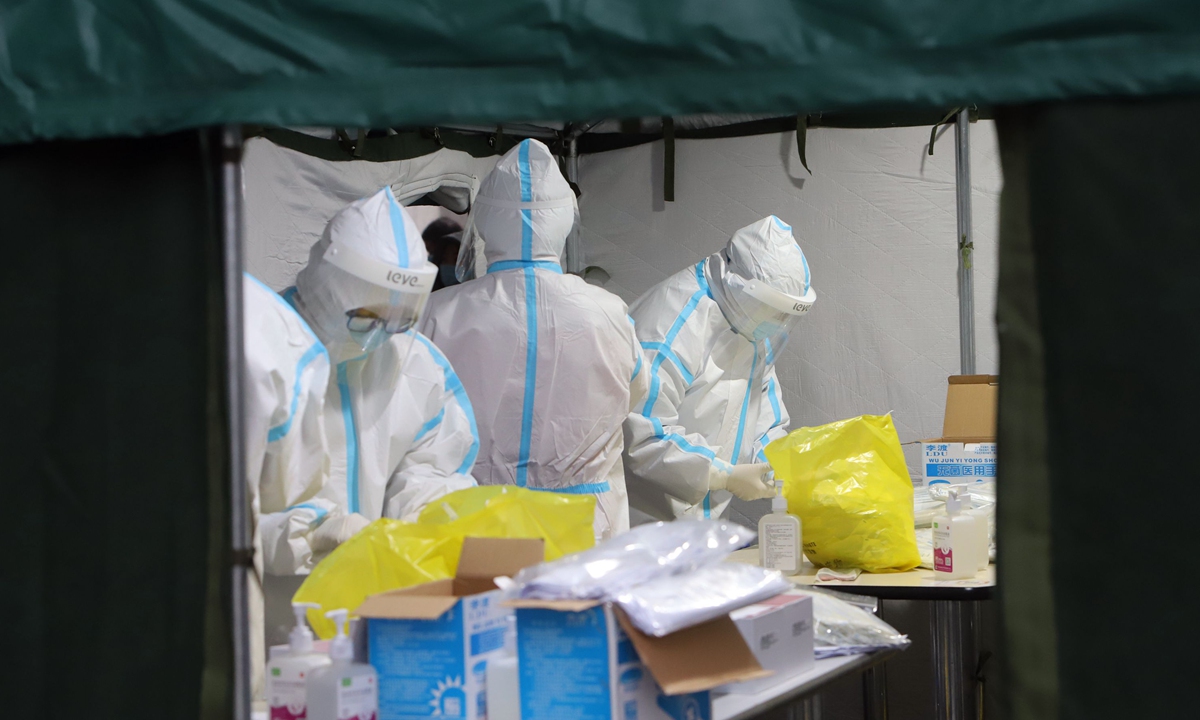
Medical staff in Tianjin carry test tubes at a temporary test site in Tianjin. Photo: People's Daily
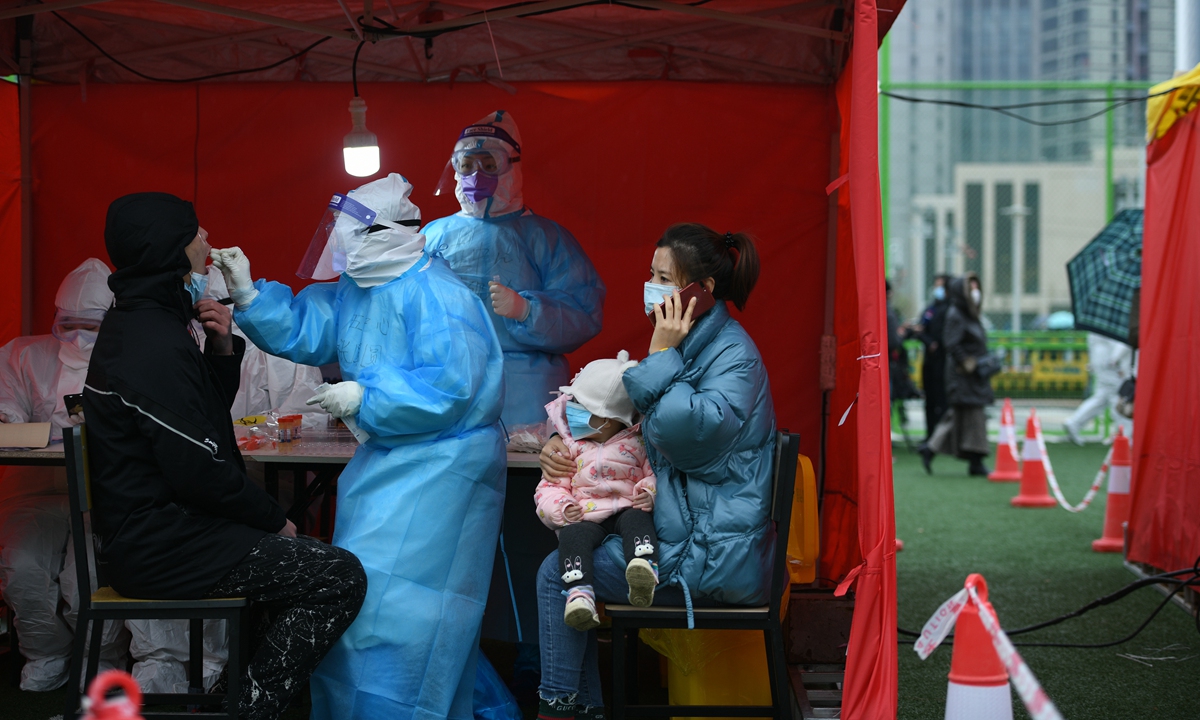
Medical personnel collect throat swabs from local residents in Tianjin Binhai New Area. Photo: AFP
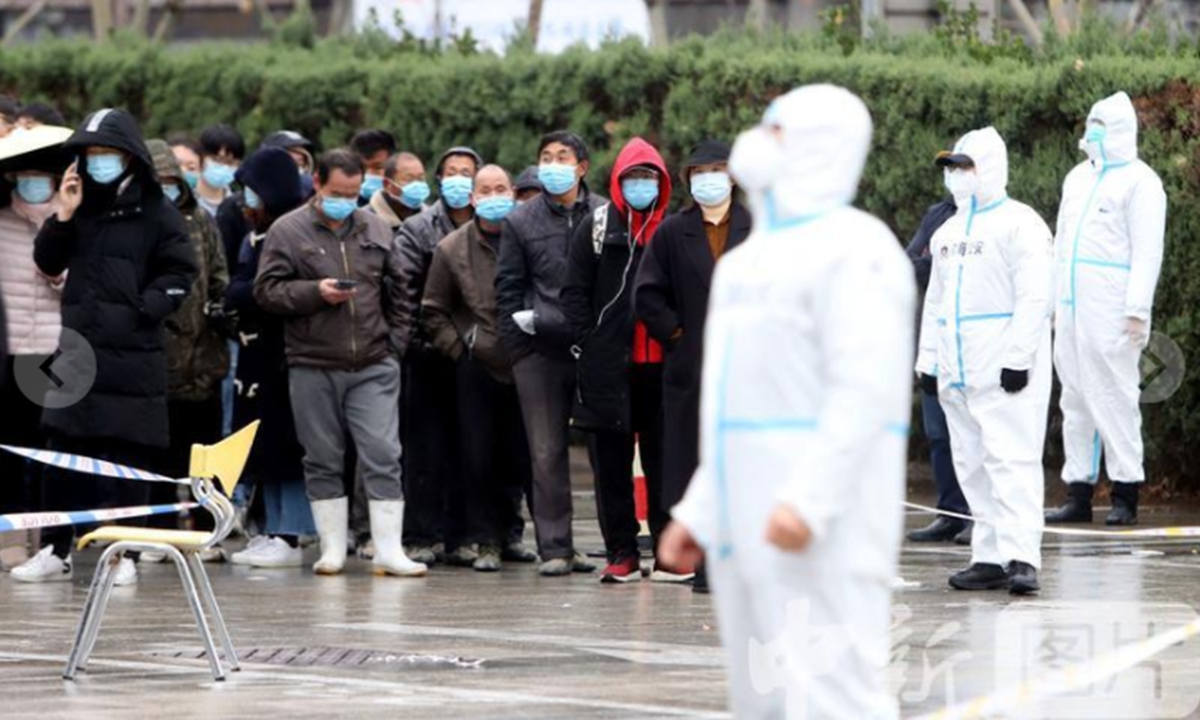
People in Tianjin Binhai New Area conduct COVID-19 nucleic acid tests on Saturday. Photo: Xinhua
